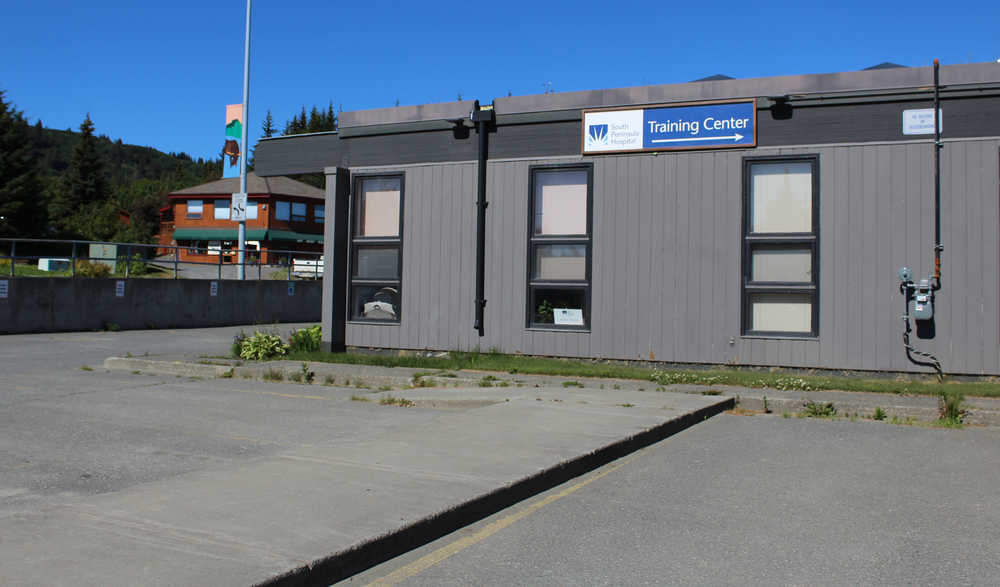If an intravenous drug user goes into The Exchange at the South Peninsula Hospital Training Center to dispose of their used needles, they can receive a “safer injection kit,” condoms, Narcan overdose response kits, free rapid HIV and Hepatitis C tests, and other health-related information.
They will not receive judgment or scrutiny from the police department, said Catriona Reynolds, Homer city council member and organizer for The Exchange.
The few people who came in to The Exchange on Tuesday evening on the program’s debut day were not sure what to expect, said Dr. Sarah Spencer of South Peninsula Hospital. Questions about privacy, particularly concerning the Homer Police Department’s view of The Exchange, came up.
“There was some concern if the police were going to be watching. We’ve involved the Homer Police Department in this whole development plan,” Spencer said. “They’re supportive of us having this plan and as long as we aren’t have problems with people acting out or doing anything inappropriate … they’re going to keep their distance.”
The city’s recent move to remove the ban on drug paraphernalia, which would have made the syringes and other tools to inject drugs handed out by The Exchange illegal, allows the organization to operate and provides drug users with the ability to get clean syringes without fear of legal repercussion.
The safer injection kits include color-coded syringes, small disposable metal cookers, sterile water, small cotton pellets that act as filters for impurities when drawing the drug into the syringe, alcohol wipes, clean tourniquet and bandages.
“It’s basically everything that someone needs for five sterile injections. When people come they can get up to four bags of these kits,” Spencer said.
In addition to answering questions, the volunteers at The Exchange received advice about how they could make the space more comfortable for people walking in, such as having a screen by the door so people can have a private one-on-one conversation with a volunteer instead of walking into a open room with multiple eyes on them. Though a small handful of people showed up, they indicated to the volunteers that there were many more interested.
“The people who came said that they believe it was just the tip of the iceberg and that there are many more people in need of services,” Reynolds said. “Word of mouth is the best way to let people know that … I think we’re able to be there in a non-judgmental way if people are able to get through the door then everything’s OK.”
The Exchange plans to run every other Tuesday from 5 p.m. to 7 p.m. and is still looking for a long-term source of financial support to move from the pilot to a permanent program. The organization has received inquires about donating, and are currently working on a way for people to give donations to The Exchange, Reynolds said.
Anna Frost can be reached at anna.frost@homernews.com.


